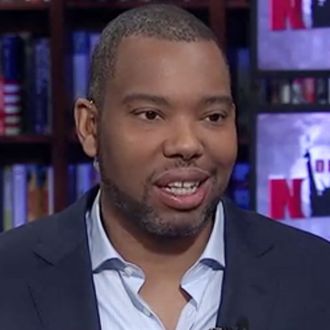
Over the next month, Bernie Sanders will either drastically increase his level of support among nonwhite voters or lose all hope of winning the Democratic nomination.
The Vermont senator battled Hillary Clinton to a virtual tie in Iowa — but lost the Hawkeye State’s few nonwhite voters by more than 20 points. Sanders crushed Clinton in the New Hampshire primary Tuesday night, but ABC’s exit poll found nonwhite voters (not that there were many) dividing evenly between the two candidates. A recent Washington Post/ABC poll of Democrats nationwide found Sanders trailing by just 2 points among white voters — but down by 40 among nonwhite voters. When a Clinton operative has taken all of their Xanax and still can’t sleep, these are the numbers they silently recite.
Sanders is fully aware of the challenge before him. On Wednesday, the democratic socialist traveled to Harlem to dine with Al Sharpton. While the good reverend plans to withhold any endorsement until meeting with Clinton next week, two of America’s most influential black intellectuals declared Sanders the “lesser evil” Wednesday morning.
In The Nation, Michelle Alexander has penned a 3,000-word indictment of the Clinton legacy in African-American communities, titled “Why Hillary Clinton Doesn’t Deserve the Black Vote.” Alexander’s condemnation carries weight; her best-selling history of mass incarceration, The New Jim Crow, is often called “the bible of the Black Lives Matter movement.”
In her essay, Alexander argues that although President Clinton “did not declare the War on Crime or the War on Drugs … he escalated it beyond what many conservatives had imagined possible.” Alexander recites the litany of draconian policies packed into Clinton’s infamous crime bill — the enormous sentencing disparities for crack versus powder cocaine, the mandatory life sentences for many third-time federal offenders, the creation of new capital crimes — and notes that by the time the “first black president” left power, the United States boasted the highest rate of incarceration on planet Earth.
Alexander goes on to contest Clinton’s economic legacy, writing that in 2001, “the true jobless rate for young, non-college-educated black men (including those behind bars) was 42 percent.” The millions of African-American families burdened by a breadwinner’s underemployment or incarceration were then further impoverished, according to Alexander, by the Clinton-backed reform of the welfare system. In the 15 years after that legislation passed, the incidence of extreme poverty doubled in America, reaching 1.5 million households.
Alexander attempts to deflect the objection that Hillary Clinton shouldn’t be judged by the sins of her husband, writing, “Hillary wasn’t picking out china while she was first lady. She bravely broke the mold and redefined that job in ways no woman ever had before.” Alexander argues that the former First Lady championed the Crime Bill, at times with language that “cast black children as animals.” She also notes that Clinton defended welfare reform during her 2008 presidential campaign.
Alexander’s assessment of Sanders — who voted for the Crime Bill while in Congress — is kinder, though still less than glowing.
“Sanders opposed the 1996 welfare-reform law. He also opposed bank deregulation and the Iraq War, both of which Hillary supported, and both of which have proved disastrous,” she writes. “In short, there is such a thing as a lesser evil, and Hillary is not it.”
That isn’t the sort of endorsement you put in an ad, but it’s certainly better than nothing. The same can be said for Ta-Nehisi Coates’s comments in an interview with Democracy Now! Wednesday morning.
Coates, who has criticized Sanders for his dismissal of reparations, went on to clarify that he did not intend his statement as an endorsement but merely as a statement of fact.
In an interview with the New York Times Wednesday afternoon, Coates elaborated on his decision. The Atlantic columnist took a similarly dim view of the Clinton legacy, while expressing admiration for the way the socialist senator has expanded the range of acceptable political debate.
The core strength of Sanders’s campaign has been his unprecedented support among younger voters. In each of the first two primary contests, Sanders won voters 18 to 34 by roughly 70 points. Coates and Alexander are two of the most widely read African-American authors on this country’s college campuses. Their (exceedingly tentative) support should help Sanders improve his standing among nonwhite college voters in South Carolina and beyond. Sanders is already close to being competitive with Clinton among nonwhite millennials, even as he trails her by wide margins among every other age group within the demographic.
But, contrary to much media discourse, the Black Lives Matter movement isn’t necessarily any more representative of African-American Democrats writ large than Occupy Wall Street was of white ones. A Gallup poll released last year found 52 percent of African-Americans saying that local police treat minorities “fairly,” an assessment unanimously rejected by BLM. And although black voters are overwhelmingly Democratic, within the coalition they are more likely to describe themselves as “moderate” than their white counterparts.
That doesn’t mean Sanders has no hope of connecting to a broad array of African-American voters. In fact, although many black activists and writers have criticized Sanders for focusing on the economy to the exclusion of racial-justice issues (a line of critique that has ebbed somewhat since the candidate released a racial-justice plan), African-American voters as a whole tend to express far greater concern with jobs and the economy than with issues of overpolicing and incarceration.






























